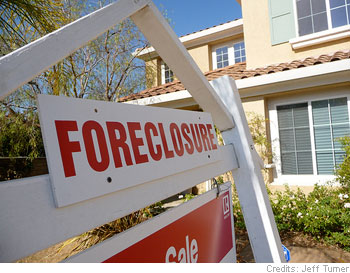 The New York Times reports that GMAC (now a subsidiary of Ally Financial) has admitted that it filed “dubious” financial documents.
The New York Times reports that GMAC (now a subsidiary of Ally Financial) has admitted that it filed “dubious” financial documents.
The problem goes beyond GMAC. A Florida circuit judge is quoted as saying some of the documents filed by lenders are “incompetent,” some “just sloppy,” and he suggests “there could be a fraudulent element.”
In boom times, lenders cut many corners including loan documentation. In the 1980s Texas banking crisis, regulators taking over failed banks often found it challenging to find loan documents. Even if found, they could be defective.
Securitization has greatly complicated the problem. Mortgages are sliced and diced into separate tranches of securities. It can difficult to prove ownership of the mortgage. If the originator was sloppy in preparing the underlying loan documents, it can be an impossible task.
The temptation for lenders can be to fake documents and falsify affidavits. Read the NYT story if you doubt that.
Judges in some jurisdictions have reacted by routinely throwing out foreclosures if the documents are not up to snuff. Interestingly in a high proportion of cases, the foreclosure is never refiled.
(In some states, like Texas, you need not even go before a judge to foreclose on a property. But there are treble damages for legal chicanery.)
Some on the political right have reacted with horror at what they view as a populous impulse to favor borrowers over creditors. Let’s leave motivation aside. Protecting property rights in a legal proceeding is a combination of substance and process. The minimal substance for a purported lender to seize collateral surely must be to prove he is the lender, i.e., has title to the loan.
Classical liberals are not pro-business, but pro-market. They do not favor creditors or borrowers, but property rights. The judges rejecting dubious claims of creditors are supporting not over-riding property rights.
- Bulenox: Get 45% to 91% OFF ... Use Discount Code: UNO
- Risk Our Money Not Yours | Get 50% to 90% OFF ... Use Discount Code: MMBVBKSM
Disclaimer: This page contains affiliate links. If you choose to make a purchase after clicking a link, we may receive a commission at no additional cost to you. Thank you for your support!



Leave a Reply